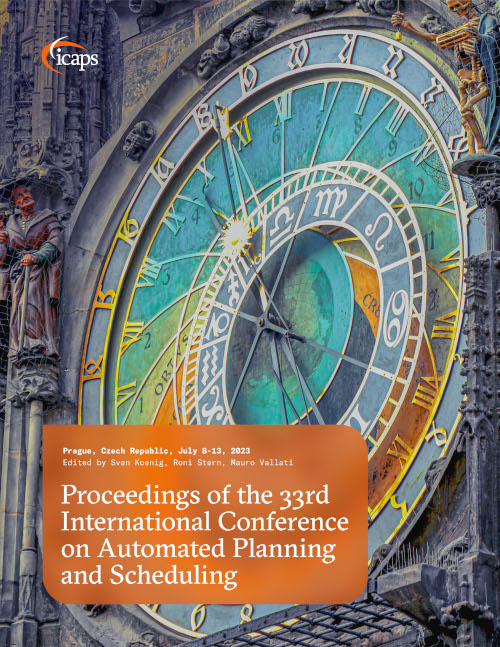Computing Domain Abstractions for Optimal Classical Planning with Counterexample-Guided Abstraction Refinement
DOI:
https://doi.org/10.1609/icaps.v33i1.27198Keywords:
Classical planning techniques and analysis, Heuristic searchAbstract
Abstraction heuristics are the state of the art in optimal classical planning as heuristic search. A popular method for computing abstractions is the counterexample-guided abstraction refinement (CEGAR) principle, which has successfully been used for projections, which are the abstractions underlying pattern databases, and Cartesian abstractions. While projections are simple and fast to compute, Cartesian abstractions subsume projections and hence allow more fine-grained abstractions, however at the expense of efficiency. Domain abstractions are a third class of abstractions between projections and Cartesian abstractions in terms of generality. Yet, to the best of our knowledge, they are only briefly considered in the planning literature but have not been used for computing heuristics yet. We aim to close this gap and compute domain abstractions by using the CEGAR principle. Our empirical results show that domain abstractions compare favorably against projections and Cartesian abstractions.Downloads
Published
2023-07-01
How to Cite
Kreft, R., Büchner, C., Sievers, S., & Helmert, M. (2023). Computing Domain Abstractions for Optimal Classical Planning with Counterexample-Guided Abstraction Refinement. Proceedings of the International Conference on Automated Planning and Scheduling, 33(1), 221-226. https://doi.org/10.1609/icaps.v33i1.27198

